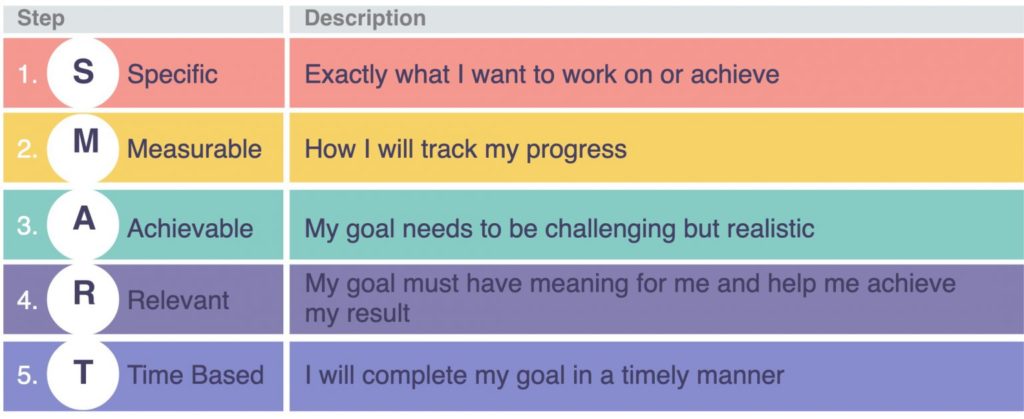Goals should be maps to where you want to go. If you have vague, ambiguous goals, you’re not going to end up where you want. The power of SMART goals lies in its simple formula. Goals should be smart, measurable, attainable, realistic/relevant, and time-bound.
During your individualized coaching session, your career coach will prompt you to create short-term as well as long-term goals that meet the SMART goal criteria. These goals will help you stay on track as well as motivate you in planning your future.
Specific – To set a specific goal, you must first answer the six “W” questions:
• Who – Who is involved?
• What – What do you want to accomplish?
• Where – Identify a location.
• When – Create a timeframe.
• Which – Identify requirements and constraints.
• Why – Identify specific reasons, a purpose, or benefits of accomplishing the set goal.
Measurable – Establish the criteria for measuring your progress while you work towards your goal. Ask yourself questions like: How much? How many? And how will I know when I achieve my goal?
Attainable – When you identify your goal and determine how you are going to achieve your goal; you see how attainable it is and how much effort it will require.
Realistic – In order to be realistic, your goal should represent an objective toward which you are both willing and able to work. Just because you have set your goal high, it does not mean it is unrealistic.
Timely – No goal is achievable if you don’t have the time for it. All goals should be kept within a well-detailed time frame.

